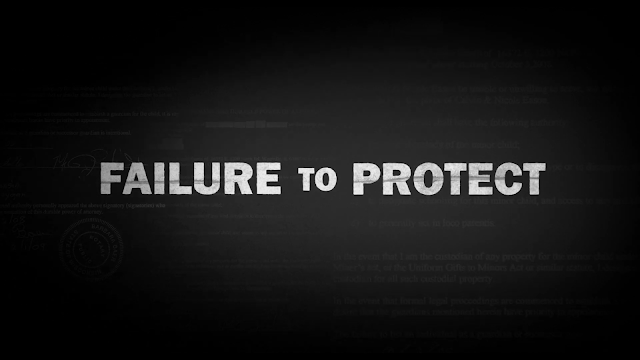Movie Review: Failure to Protect

© Sorted Pictures
Failure to Protect is a documentary that explores the gray area of Child Protective Services and the unexpected problems in the system.
by Jeremy Fogelman
Cast: Drue Bogdonoff, Vincent Davis, Victor Greenberg, Latoya Conway Hampton, Diana Iglesias, Shawn McMillian, Melinda Murphy, Michael Nash, Janet Nichols, Robert Powell, Kym Renner, Documentary
Rating: ★★★
The function of Child Protective Services is a good one -- to protect children, as the name would imply, and many children are protected from harm through the efforts of such organizations. But when there are human beings involved, nothing is perfect and sometimes things go wrong even with the best of intentions. It can be tricky to pursue this line of inquiry because of the fraught subject matter, but perhaps that makes it all the more worthwhile to do so, especially if you can present a nuanced perspective.
Failure to Protect is a documentary from Jeremy Pion-Berlin who is a longtime TV director and delves into the unseen side of Child Protective Services. We start by meeting some adults at a “Parents Anonymous Meeting” where parents who have lost custody of their children to protective services meet and discuss their problems, just like an AA meeting might delve into alcoholism. But there’s more to it than simple blame.
We hear from multiple experts and people related to the field, child and adult psychologists, investigators, lawyers, government employees, and social workers both current and former. An early thing we hear is that bizarrely criminals have more rights than parents. I certainly do not believe this movie substantiates this bold claim, but it does present areas where parents do not have the rights they potentially ought to have in certain circumstances.
We mainly follow a few parents as case studies, although all have some parallel backstories. One is Rosa, a single mother with four kids in foster case and children from multiple fathers, who struggles with the abuse she didn’t initially want to believe was happening between her ex-boyfriend and her underage daughters. There are some heartbreaking and even some heartwarming moments in the movie showing Rosa with her kids, and an interview with her eldest, estranged daughter that is painful to hear but grants the young woman with a lot of respect and grace.
Another is Anna, a former vet and children’s book author, who along with her partner adopted her grandson after her daughter was killed -- but the kid was troubled and accused them of abuse. Of course they say the claims are false, and the evidence seems to hold that up, but the movie gets into how difficult it is for parents and guardians in such circumstances, because the path to getting children back is difficult even under the best of circumstances. For direct abuse claims, it can be almost impossible.
 |
| © Sorted Pictures |
A similar case is shown with older couple Ernie and his wife Trish as they discuss how one of their kids, who has oppositional defiant disorder, made abuse allegations and they lost custody of their kids, including a son with special needs who struggles without them. These topics are complicated -- Rosa knows a mistake was made, even if she wasn’t the one who was actually abusive, while the other two sets of parents have been accused and maintain their innocence.
I certainly couldn’t say either way, although the documentary certainly seems to have the opinion that they are -- we do hear from some investigators about issues in the industry, like cases of social workers being caught lying under oath and later claiming they were in the right to do so.
The movie doesn’t end fully with hope or hopelessness, but with calls for understanding -- some people you can see are growing and changing, and others are falling behind -- perhaps through no fault of their own. It’s a very compelling documentary, opening questions that don’t have clear answers, even if the general lessons seems to be simple enough, that reformation of this system is necessary to truly protect both children and parents alike. A lot of kudos must be given to the director who presents things in a manner that is biased but fair, and handles many of these situations with a lot of care -- a hard one to watch at times but certainly worthwhile.
Failure to Protect has a run time of 1 hour 38 minutes and is not rated. The film is now available on Amazon Prime Video. Click the poster below to rent or purchase.


Comments
Post a Comment